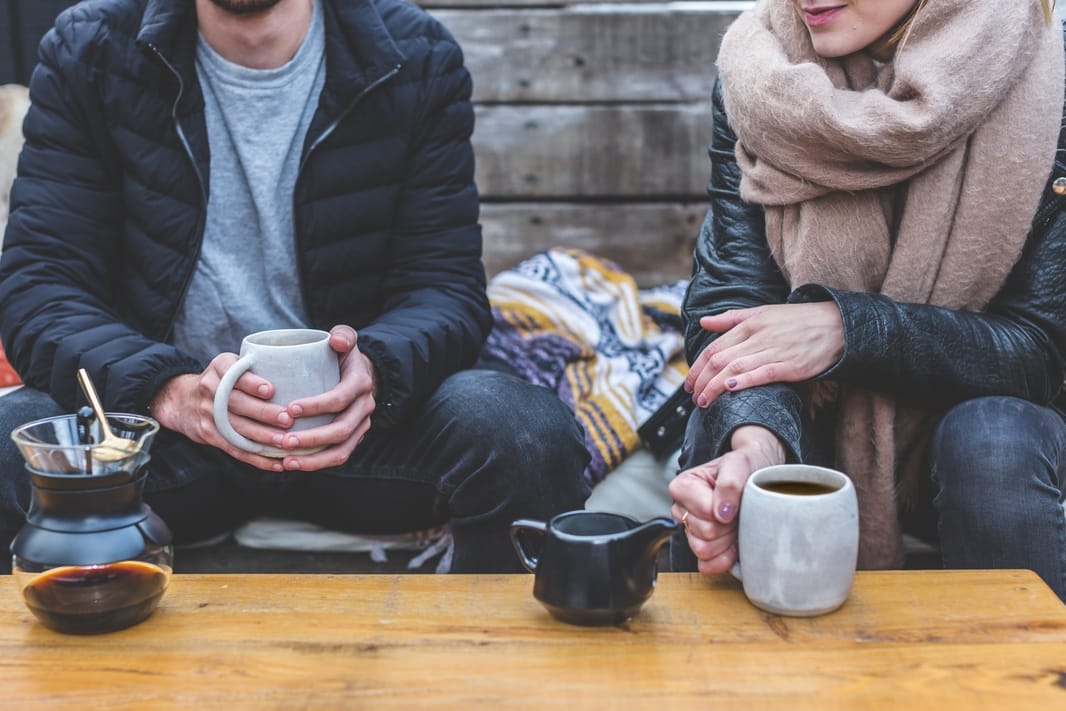Tired of Getting Anxiety From Coffee?
Quick Navigation
This post may contain affiliate links. Read the full disclosure here
Coffee can be a great cognitive enhancer and focus booster, but if you struggle with anxiety or chronic stress it might be doing more harm than good. Coffee is a stimulant. It may intensify feelings of anxiety, trigger the “fight-or-flight” response, leave you feeling nervous, and it can be detrimental to sleep.
Personally, I shouldn’t drink coffee. But I do. I love it too much. The taste, the morning ritual, the smell… Even though I noticed a reduction in stress and anxiety when I stopped drinking coffee, my love for it always seems to win.
Instead of quitting coffee altogether, I follow a few simple rules keep my coffee consumption in check. If you experience anxiety or stress and drink coffee, these rules will help you stay balanced.
Drink Responsibly.
No Caffeine after 2 pm.
Finish drinking your coffee before 2 pm. I picked up this habit from Jim Kwik’s podcast episode – Improve your mind with a good night sleep. If you need an afternoon boost or you’re craving an ice-tea, make it happen before 2 pm or wait until tomorrow. Caffeine has a 6-8 hour half-life. You might be the type who can fall asleep after having coffee with dessert. Even so, you’re likely getting stuck in sleep stages 1 & 2. If you consume caffeine later in the day, it will mess up your sleep.
Studies have shown that consuming caffeine less than six hours before bedtime can be detrimental to your sleep. Sleep is important to ward off the ugly anxiety monster. Coffee induced lack of sleep can set you on a vicious cycle. Cut if off before 2 pm. It’s as simple as that.
Mix Regular Coffee with Decaf
Until I picked up this habit, I didn’t understand the point of drinking decaf coffee. Now I get it. While I’m not ready to make the jump to full decaf, I make my coffee with 50% caffeinated coffee grounds and 50% decaf. The best part – I can’t tell the difference.
What is Decaf Coffee?
It’s coffee from beans that have had most of its caffeine removed. Not all, but most. Decaf coffee still contains caffeine, just a lot less than an average cup of joe (or cup of tea for that matter). With decaf coffee, you can expect around 3 mg of caffeine. A normal cup of coffee has 70-140 mg. You’ll get all the same antioxidants coffee is known for and the yummy taste, but without all the caffeine.
I’ve been hooked on Peet’s coffee lately. The Major Dickson’s blend is also available in decaf so I can drink my favorite coffee with half the caffeine.

Limit Your Coffee Consumption
As a starting point, take note of the number of cups of coffee you’re drinking per day. I generally drink 2-3 (small) cups of coffee a day. More than that leads to problems. Anxiety goes up, I don’t sleep as well, and stress levels increase. Setting caffeine consumption limits are key.
Drink less. This is easier said than done.
Here’s one trick I use. Try drinking out of a smaller cup. Set yourself up for success but making yourself more aware of the amount of coffee you drink. You’ll have to get up to refill your mug each time. This additional effort forces you to be more aware of the amount your drinking.
Article you may like: Learn how meditation can improve your anxiety.
Should You Stop Drinking Coffee Completely?
Maybe. If you are getting anxiety from coffee the first thing you should do is stop drinking coffee altogether. Take note of how your body reacts. You may find that is the best option for you.
I can’t honestly tell you to never drink coffee again when I’m not following that advice myself.
For those of you that love coffee and have stress and anxiety somewhat in control, drinking coffee isn’t the end of the world. Be honest with yourself about drinking coffee and other habits that could be making your anxiety worse.
Eliminate those things and keep a journal to log how you feel.

